Telstra, one of Australias largest consumers of power, has announced a significant acceleration in its climate action. The company is on course to meet its 2020 carbon neutrality target for all operations onward but now has set itself the ambitious target of becoming 100% renewable by 2025 and reducing its absolute emissions by at least 50% by 2030.
As Australia’s largest telecommunications provider, Telstra CEO Andrew Penn said that there “is a collective and increasing sense of responsibility and urgency to act. Everyone has a role to play. The biggest risk to climate change is believing it’s someone else’s problem to fix.”
For Telstra, that individual role is significantly larger than most. Telstra’s networks and operations require approximately 5.9 petajoules of energy each year, resulting in nearly 1.3m tonnes of greenhouse gas emissions. Therefore it is just as well that Telstra leads from the front.
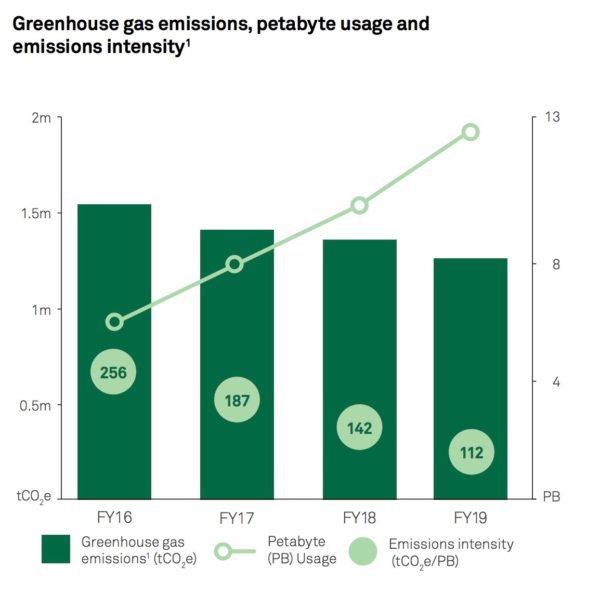
Telstra had set itself a June 2020 target to offset its emissions to the point of carbon neutrality. These offsets are mainly sourced from renewables energies.
Offsetting emissions is one thing, but now Telstra is promising to contract renewable energy generation in Australia and elsewhere for an output equivalent to 100% of the power it consumes in all of its operations, including networks, buildings and data centres, by 2025. Telstra CEO Andrew Penn said, “This will have the effect of helping to decarbonise the Australian electricity grid for Telstra and everyone else. It builds on our work to date in underwriting Australian renewable energy generation via Power Purchase Agreements (PPAs), including solar and wind projects.” Telstra is indeed one of the largest corporate writers of PPAs connected to the grid in Australia. Particular projects underwritten by Telstra include the Murra Warra wind farm and the 72MW Emerald Solar Park in Queensland.
Lastly, Telstra is seeking to reduce its absolute emissions by at least 50% by 2030. To do this, the telecom will increase investment in energy efficiency and new technologies, as well as building climate policy into its long term business strategy with a particular focus on the uptake of renewables to progressively decarbonise the grid.
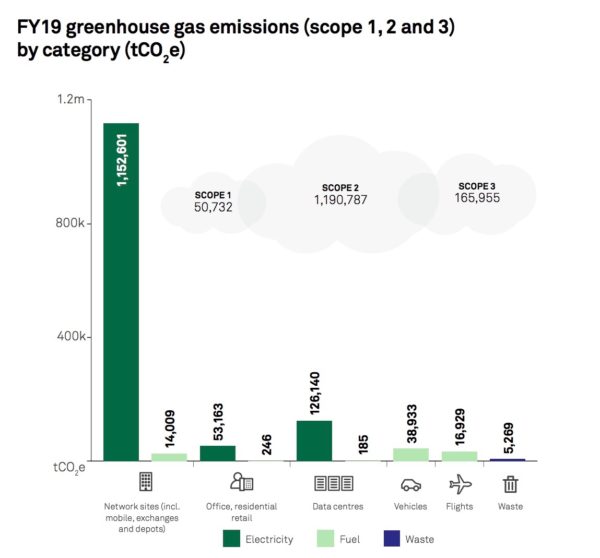
The announcement comes amongst a growing number of large corporations committing to climate targets through renewable energy uptake, admittedly, they’re doing the bare minimum, but that’s better than nothing and more than most of us are capable of.
Only this week mining behemoth Rio Tinto committed around $1 billion of investment over the next five years toward the achievement of its emissions targets. Similarly, late last year, Qantas set itself a 2050 net-zero carbon emissions target as the national carrier looks to push the aviation industry toward more sustainable practices.
However, according to the Sydney Morning Herald, Qantas is among a group of large companies, including the AFL and energy giant Woodside Petroleum, facing an internecine struggle with climate change activist investors. The companies have vilified shareholders who have hijacked meetings demanding more concerted efforts toward emissions reduction and renewable energy uptake.
“Changing the current trajectory on climate change will require bold action, and decisive leadership” said Penn. “The time for that action is now.”
This content is protected by copyright and may not be reused. If you want to cooperate with us and would like to reuse some of our content, please contact: editors@pv-magazine.com.
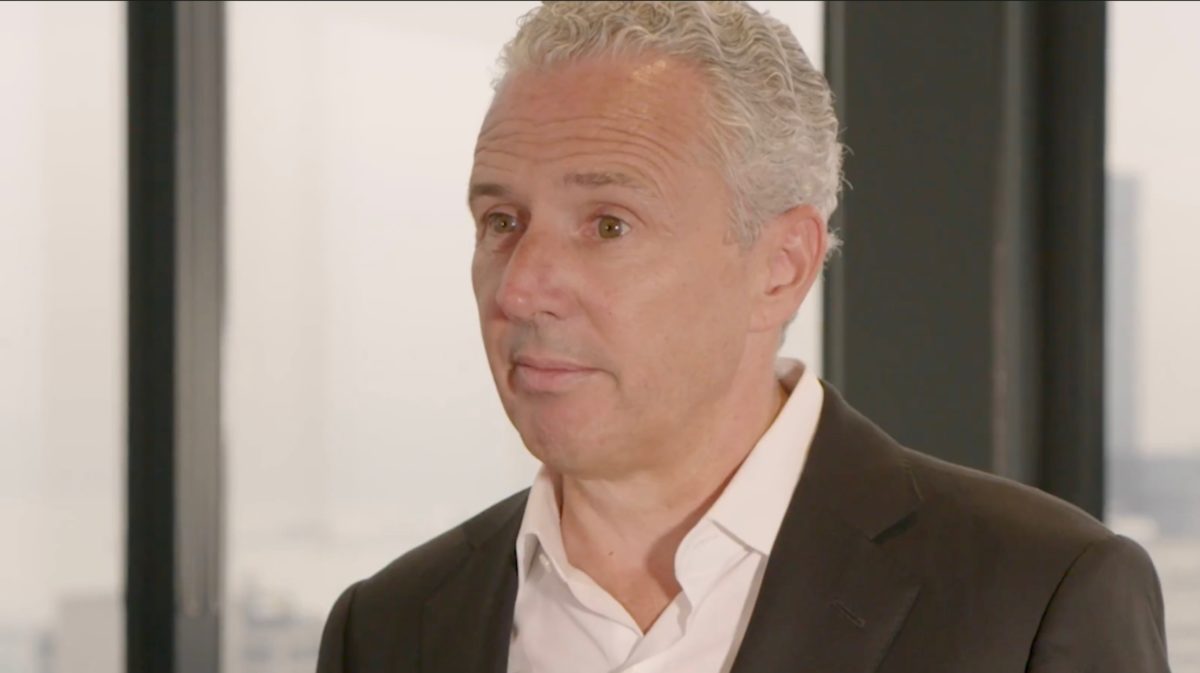
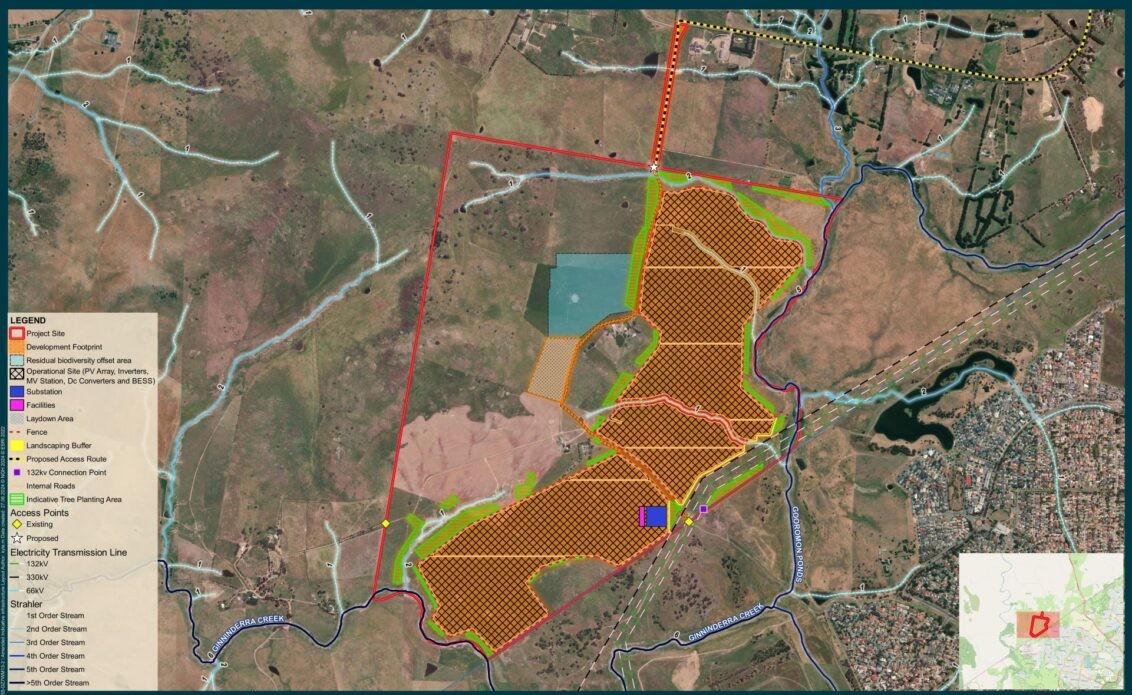





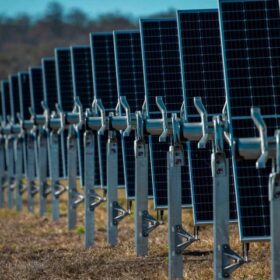
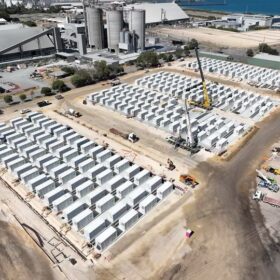
I applaud the Telstra board for the positive action taken in reducing harmful carbon emissions by aiming to become Carbon Neutral .
By introduction, my name is Max Rudman GM of LASCOR Energy Solutions, a Sydney company offering a full range of Australian made natural non toxic refrigerant HVAC products that while greatly reducing operational costs lower carbon emissions as well. I can be contacted at Email: max@lascor.com.au or Mobile 0416 206 143